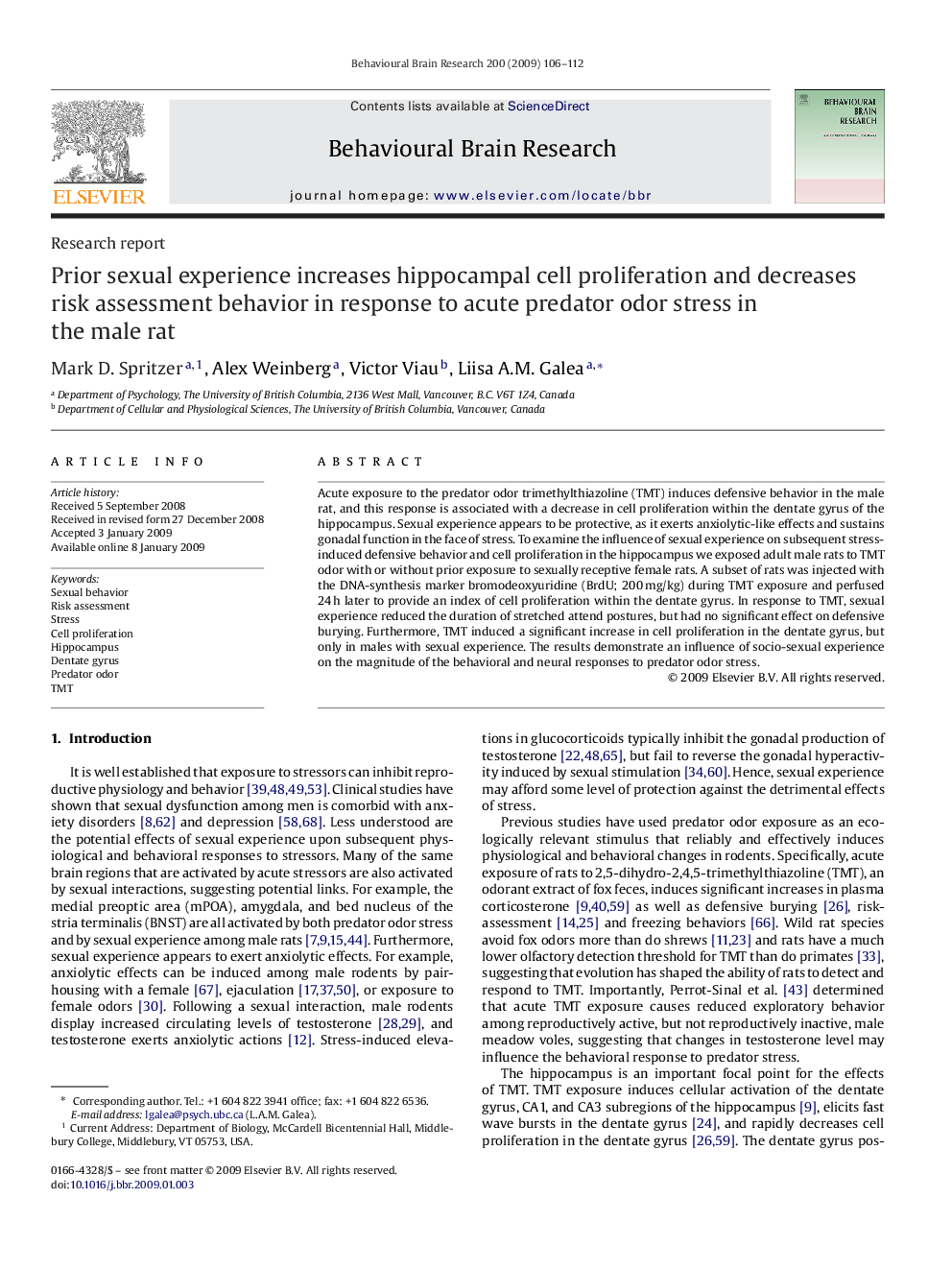| Article ID | Journal | Published Year | Pages | File Type |
|---|---|---|---|---|
| 4314789 | Behavioural Brain Research | 2009 | 7 Pages |
Abstract
Acute exposure to the predator odor trimethylthiazoline (TMT) induces defensive behavior in the male rat, and this response is associated with a decrease in cell proliferation within the dentate gyrus of the hippocampus. Sexual experience appears to be protective, as it exerts anxiolytic-like effects and sustains gonadal function in the face of stress. To examine the influence of sexual experience on subsequent stress-induced defensive behavior and cell proliferation in the hippocampus we exposed adult male rats to TMT odor with or without prior exposure to sexually receptive female rats. A subset of rats was injected with the DNA-synthesis marker bromodeoxyuridine (BrdU; 200Â mg/kg) during TMT exposure and perfused 24Â h later to provide an index of cell proliferation within the dentate gyrus. In response to TMT, sexual experience reduced the duration of stretched attend postures, but had no significant effect on defensive burying. Furthermore, TMT induced a significant increase in cell proliferation in the dentate gyrus, but only in males with sexual experience. The results demonstrate an influence of socio-sexual experience on the magnitude of the behavioral and neural responses to predator odor stress.
Keywords
Related Topics
Life Sciences
Neuroscience
Behavioral Neuroscience
Authors
Mark D. Spritzer, Alex Weinberg, Victor Viau, Liisa A.M. Galea,
